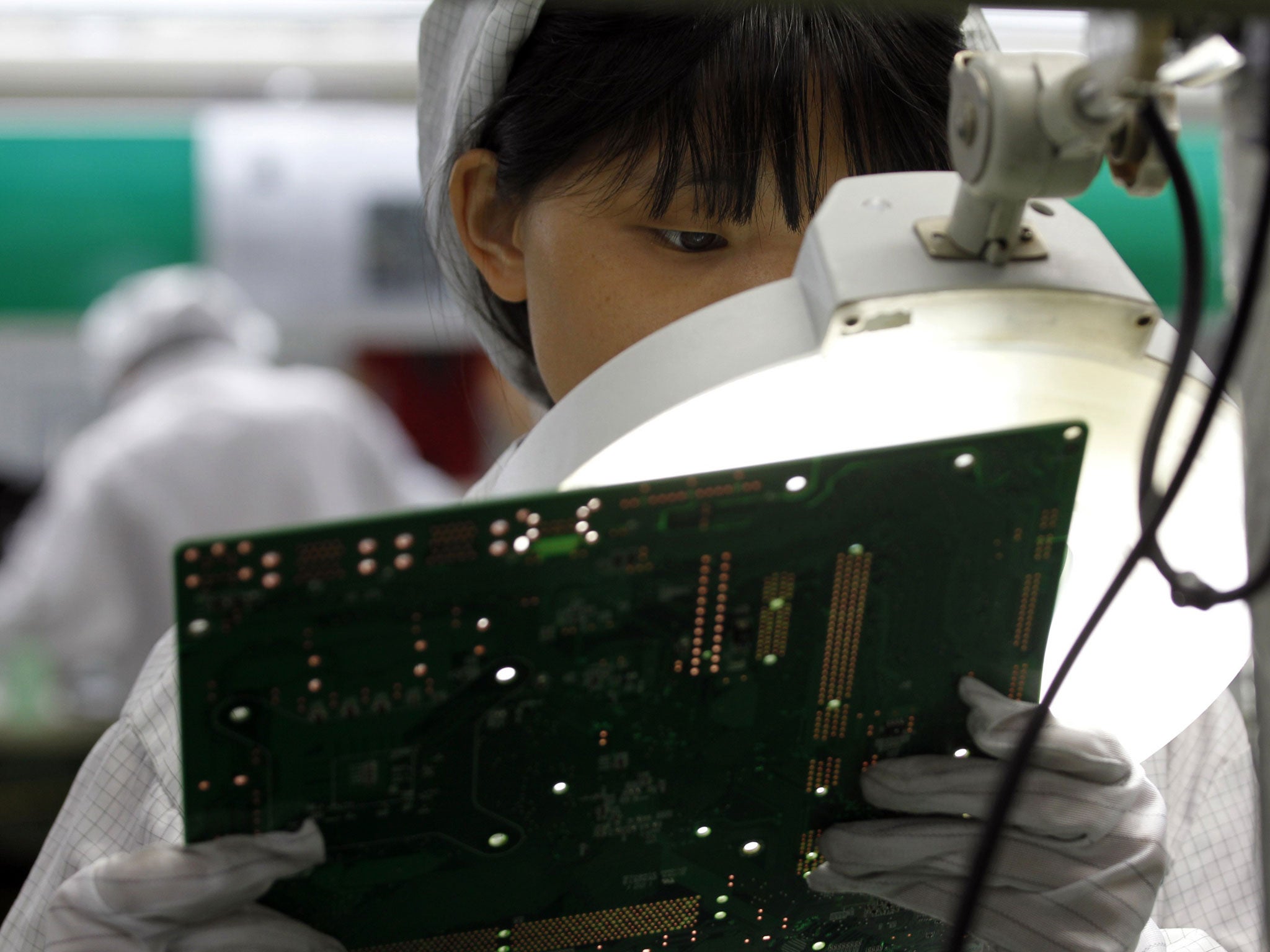Apple turns the tide by bringing jobs back to America
Tech giant makes symbolic move after criticism of outsourcing to China

It might be the most successful American business in decades, but Apple has long faced criticism at home for shipping thousands of manufacturing jobs to China.
That could be about to change after its chief executive, Tim Cook, announced plans today for a line of Macs which will not just be designed in California – they will also be made in the US. Steve Jobs' successor said the shift would see the company bring back the production of an existing range of computers in 2013.
In all, Apple plans to begin by spending about $100m (£62m) to build a line of Mac machines, deploying a sliver of its manufacturing budget on a hugely symbolic move.
Only last year, the late Mr Jobs, when questioned by President Barack Obama about lost manufacturing jobs, was reported to have said: "Those jobs aren't coming back."
But Mr Cook has now signalled otherwise. "Next year we're going to bring some production to the US," he told Bloomberg Businessweek. "This doesn't mean that Apple will do it ourselves, but we'll be working with people and we'll be investing our money."
Like others in American business, Apple shifted its manufacturing base abroad – principally to China – in the 1990s. The combination of cheap labour, growing transport links and the development over time of vast factories, such as those managed by Apple's partner Foxconn, ensured that while ground-breaking products such as the iPhone and the iPad were conceived in the US, they were put together thousands of miles away in Chinese factories.
This often led to criticism – both for its perceived economic impact and, in the case of Foxconn, the treatment of workers who made the machines while enduring what were reported to be poor conditions. A series of suicides by workers at Foxconn complexes sharpened criticism.
But with the home economy still weak, American businesses have come under increasing pressure to help stimulate the labour market. Better productivity in the US at a time when China is becoming less competitive thanks to rising wages and shipping costs has brought about a tentative turn in the outsourcing tide. General Electric, once a stalwart of US manufacturing but lately more of a pioneer in outsourcing, recently set up a new assembly line in Kentucky to build water heaters that were previously made in China.
Mr Cook said Apple had been drawing more on US factories – but the boss, who cut his teeth building the technology giant's global supply chain, lamented the loss of manufacturing skills in the country.
"It's not so much about price, it's about the skills," he said in another interview with NBC today, adding: "The consumer electronics world was really never here. It's a matter of starting it here."
Talking further to Businessweek, he said: "I don't think we have a responsibility to create a certain kind of job. But I think we do have a responsibility to create jobs."
The plan to bring some of its manufacturing business back to the homeland came as Apple shares, which remain down over the week, regained some ground, climbing by about 2 per cent during afternoon trading.
Though still the world's most valuable listed company, and while the stock remains up sharply over the year, Apple has been hit by concern about competition from rival brands. On Wednesday, a report from the research firm IDC said Apple's standing in the growing Chinese smartphone market had ebbed to sixth in the third quarter as local rivals made inroads.
Meanwhile, Apple and Samsung renewed their legal tussle over patents in a US federal court, with the South Korean conglomerate seeking to overturn an August jury verdict holding it guilty of copying iPhone and iPad designs. It was ordered to pay $1bn to the Californian business, which is now seeking to have the award increased. Apple also wants a stop put on sales of older Samsung products that are at issue in the lawsuit.
Subscribe to Independent Premium to bookmark this article
Want to bookmark your favourite articles and stories to read or reference later? Start your Independent Premium subscription today.

Join our commenting forum
Join thought-provoking conversations, follow other Independent readers and see their replies